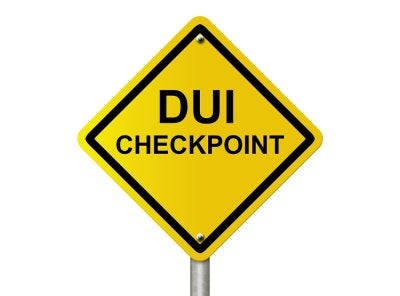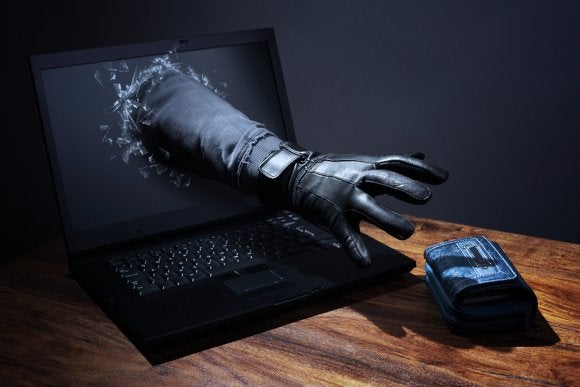-
What are the Next Steps in Regulating Marijuana in Maryland?
Maryland took a huge step forward with the passing of the medical marijuana program, but there’s still a long way to go towards marijuana legalization. The stage has been set, and now the framework needs to be built to support a marijuana industry in Maryland. For example, the state needs to determine where to grow marijuana and the criteria for applicants. Watch this video from ABC 2 News to learn more about the next steps in regulating marijuana in MD.
If you are getting into the medical marijuana field, work with a marijuana lawyer in Rockville to ensure compliance with Maryland’s medical cannabis laws. An experienced lawyer can keep you up-to-date regarding national guidelines and statewide laws to keep your legal marijuana dispensary open and out of legal trouble.
-
What are the Requirements for Receiving Medical Marijuana in Maryland?
Maryland’s medical marijuana laws changed in 2014 when Governor Martin O’Malley signed House Bill 881 into law. Under the new laws, licensed cannabis dispensaries can provide qualifying patients with medical marijuana as an alternative treatment without concern about fines or other legal consequences. A medical marijuana lawyer in Rockville can help you set up a legal dispensary and sell cannabis to qualifying patients. The requirements for receiving medical marijuana in Maryland include:
Maryland Residency
Only Maryland residents are eligible to purchase medical marijuana from licensed dispensaries in the state. In addition to presenting a valid medical marijuana card, patients must also provide proof of Maryland residency. Acceptable proofs of residency include a driver’s license or other state-issued identification card, a passport, a utility bill, or a bank statement.Qualifying Condition
Maryland marijuana patients must possess a documented condition that has been clearly outlined by the Medical Marijuana Commission and Department of Health & Mental Hygiene’s list of qualifying conditions. Qualifying conditions include cancer, glaucoma, multiple sclerosis, HIV/AIDS, Hepatitis C, Crohn’s disease, Alzheimer’s disease, severe nausea, chronic pain, and epilepsy.
by the Medical Marijuana Commission and Department of Health & Mental Hygiene’s list of qualifying conditions. Qualifying conditions include cancer, glaucoma, multiple sclerosis, HIV/AIDS, Hepatitis C, Crohn’s disease, Alzheimer’s disease, severe nausea, chronic pain, and epilepsy. Application for Marijuana Card
An individual will need to submit an official application for a medical marijuana card to Maryland’s medical marijuana program. Legitimate medical records and written certification from a doctor must accompany the application as proof of a qualifying condition. Medical marijuana cards are issued by the Medical Marijuana Commission and Department of Health & Mental Hygiene after the application it approved and processed.If you need help complying with Maryland’s complex marijuana regulations, contact a law firm in Rockville that specializes in providing counsel on medical cannabis in the state. A criminal law attorney can also help you in the event that you unknowingly sell cannabis to anyone with an invalid marijuana card.
-
Preparing for Your Meeting with a Lawyer
If you’re facing legal troubles and seeking legal representation, make sure you are prepared for your first meeting with a lawyer in Rockville . Being unprepared can be a waste of time for both you and the lawyer, and it may even have an impact on the outcome of your case. In addition to basic contact information, you’ll want to provide your lawyer with a chronological summary of the facts in your case. Also make sure to bring any documents that relate to your legal matter, include contracts, photographs, accident reports, witness statements, and correspondences. Even if you don’t believe a document to be important, your criminal defense lawyer may find it incredibly valuable in mounting your legal defense.
It can also be helpful to prepare a list of goals that you want the lawyer to help you achieve. If you have any questions about what you should bring, call the defense attorney prior to your initial consultation.

-
Maryland’s DUI Laws
Being arrested for drunk driving in Maryland can have far-reaching and long-lasting consequences. Even first-time offenses can carry steep fines and prison time if convicted, so contact an experienced and aggressive DUI lawyer in Rockville if you have been charged with driving under the influence. To help you know where you stand, here’s a look at the different charges and penalties under Maryland law.
DUI vs. DWI
Driving under the influence (DUI) is the top alcohol infraction, and it means that your blood alcohol concentration (BAC) posted at a level of 0.08% or higher. People who end up on the lower end of the BAC spectrum but fail on a field sobriety test (administered by a police officer) are charged with driving while intoxicated (DWI). In defending against a DUI or DWI, your criminal defense lawyer will analyze the results of field sobriety tests and/or chemical tests to find weaknesses in the case against you. Your lawyer will use these findings to negotiate down during sentencing or have your case dismissed entirely.
driving while intoxicated (DWI). In defending against a DUI or DWI, your criminal defense lawyer will analyze the results of field sobriety tests and/or chemical tests to find weaknesses in the case against you. Your lawyer will use these findings to negotiate down during sentencing or have your case dismissed entirely. DUI Penalties
First offense DUI carries administrative license suspension penalties of six months. Reinstatement will require completion of an alcohol/substance abuse treatment program. An ignition interlock device may be mandated at the discretion of the courts upon reinstatement. First-time offenders also face incarceration for up to one year, with enhanced penalties of up to two years if transporting a minor at time of arrest. Fines and penalties for a DUI conviction amount to $1,000 for a first offense and are significantly higher for second and third offenses. A third offense also carries jail time of up to three years.An experienced DUI/DWI defense attorney in Rockville can help you avoid the most serious consequences of a drunk driving conviction. Schedule your initial consultation as soon as possible after arrest to give your lawyer ample time to formulate an effective defense strategy.
-
What Maryland Physicians Need to Know about Medical Marijuana Regulations
In July 2014, the state’s Medical Marijuana Commission released its initial draft of proposed rules for physicians participating in the medical marijuana program in Maryland. Even though the commission’s efforts are receiving mixed reviews, feelings toward medical marijuana in Rockville are mostly positive. The commission published these draft rules to draw feedback from Maryland residents and organizations that are concerned with the structure of the state’s new medical marijuana system.
Training requirement
The commission’s proposed rules have drawn some criticism from a leading advocate. Del. Dan K. Morhaim, a Baltimore County Democrat and the General Assembly’s only physician, objects to the
draft regulations for requiring training and continued education in the medical use of marijuana for physicians interested in providing patients with access to the drug. Morhaim questions the need for requiring physicians to take periodic medical marijuana courses when there is no similar requirement for more dangerous prescription drugs. Morhaim and others fear that this proposed requirement would expose physicians to federal prosecutions and discourage participation in the program.
Feedback
Even though the continuing education requirement has drawn criticism, the commission’s draft rules have received mostly positive reviews. In 2013, the Maryland General Assembly passed regulations so restrictive that no Maryland patient was able to legally acquire the drug. The problem in the previous draft of regulations was restricting the drug distribution to the state’s academic medical centers, none of which showed any interest in participation. The 2014 version removes this barrier and allows nearly any licensed physician to prescribe medical marijuana . -
Understanding Maryland’s Medical Marijuana Regulations [INFOGRAPHIC]
There are 23 U.S. states that have laws legalizing medical marijuana, with the addition of Washington, D.C. and Guam. Maryland passed a medical marijuana bill in 2014 after much debate. Currently, there are not any medical marijuana dispensaries open in the state, but it’s expected that licenses will be granted in 2015. Neither patients nor caregivers are legally allowed to grow medical marijuana themselves; instead, it must be provided by a state-licensed dispensary. Growers must pay $250,000 for a two-year license, while dispensaries have to pay $80,000 for the same. Take a look at this infographic to learn more about regulations on medical marijuana in Maryland, and how they stack up to other states. If you are considering getting into cannabusiness, it’s easy to see why you need a lawyer with expertise in marijuana legalization in Rockville . Please share with your friends and business associates.

-
Can Medical Marijuana Help with Epilepsy?
Across the country, states have authorized medical marijuana prescriptions to patients suffering from debilitating conditions, including epilepsy, cancer and post-traumatic stress disorder. In 2014, Maryland passed legislation for marijuana legalization in Rockville and across the state. While researchers have focused their studies toward the effects of marijuana on adult patients, doctors are now prescribing medical marijuana to children with similar debilitating conditions.
As this CNN report illustrates, marijuana legalization has helped young patients suffering from catastrophic epilepsy. In particular, this video shares a father’s experience in administering a form of marijuana that doesn’t get his son high, but effectively treats his seizures. After switching from other medications to medical marijuana, this six-year-old patient was able to trade taking 22 pills per day to one a half marijuana pills per day. As a result, he is able to play, laugh and eat like other six-year-old boys.
-
Defining White Collar Crime
The term white-collar crime was coined in 1939, but the phrase now refers to a range of fraud crimes involving government or business professionals. White-collar crimes near Rockville are not victimless crimes, as a single financial scam can potentially destroy a company or cost a family its entire life savings. With technology continuously progressing, white-collar crimes have become more sophisticated than ever before.
Telemarketing, advance fee, and identity theft are some of the most common scams facing consumers today. In a telemarketing scheme, the caller asks the victim to provide personal or financial information. Some warning signs that the telemarketing call is a scam is the caller urging the victim to “act now,” offering a free gift, or saying the victim doesn’t need to check out the company with anyone. In identity theft white-collar crimes, perpetrators assume their victims identities to commit fraud or other criminal acts. To prevent identity theft, attorneys recommend keeping ATM receipts, credit statements, and bank statements in secure places instead of throwing them away. In an advance fee scheme, the victim pays someone a fee in anticipation of receiving a large sum of money. This scam can be avoided by staying away from opportunities that appear too good to be true.

-
Answers to Common Questions About Maryland’s Marijuana Regulations
On April 14, 2014, Maryland became the 18 th state to decriminalize possession of marijuana. Even though the District of Columbia joined in Maryland’s initiative of marijuana legalization, Maryland will be the first state in the Mid-Atlantic region to legalize medical marijuana. While members of the medical community have welcomed the news of this legislation, most people still have some logistical questions about medical marijuana in Rockville .
What did SB 364 do?
Prior to SB 364, possession of less than 10 grams of marijuana resulted in penalties of $500 in fines and up to 90 days in jail. SB 364 changes the criminal penalties for possessing less than 10 grams with a civil fine, similar to a traffic citation.Are there penalties for subsequent offenses?
While a first offense of possession of less than 10 grams of marijuana now results in a $100 fine, a second offense is punishable by up to a $250 fine. A third or subsequent offense can result in fines up to $500 and requires the offender to attend a drug education program and a referral to an assessment for substance abuse.
assessment for substance abuse. What are penalties for minors?
Minors have different penalties for possession of marijuana , so it’s important for minors to discuss these consequences with a criminal defense attorney. The punishment for minors possessing marijuana is similar to punishment for underage drinking and driving. A minor may be required to participate in a supervised work program, attend drug education programs, and forfeit his or her license for a certain time period.Is paraphernalia decriminalized?
While SB 364 does decriminalize marijuana possession, it does not address possession of drug paraphernalia. As a result, the penalties for possessing drug paraphernalia in Maryland remain the same.How can someone handle a marijuana charge?
SB 364 is a new Maryland law, so most people aren’t sure of their rights when facing marijuana possession charges. For this reason, it’s a good idea for someone charged with possession to consult with a criminal defense lawyer. A lawyer can help explain Maryland’s new laws in relation to a particular client’s case. -
What Do Prospective Dispensary Owners Need to Know About Maryland’s Medical Marijuana Law?
When lawmakers signed legislation to legalize medicinal marijuana in Maryland last April, they created deadlines for regulations to be completed. As a result, the Marijuana Policy Project became responsible for creating guidelines for licensing doctors, growers and distributors in Maryland. Even though the Marijuana Policy Project didn’t meet this deadline, they still currently offer guidance for new Maryland cannabusiness owners on how to meet state and federal obligations.
In October, the Marijuana Policy Project hosted an information seminar for prospective cannabusiness owners in Maryland. This seminar allowed physicians as well as prospective growers and dispensers to learn what was needed to obtain cannabusiness licenses. In this video, Rachelle Young of the Marijuana Policy Project and prospective cannabusiness owners describe their experience with the seminar and Maryland’s recently passed medical marijuana legislation.

